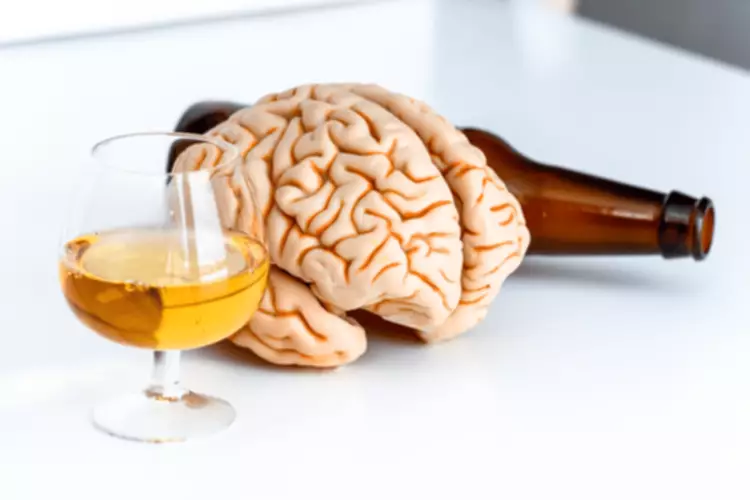
Prompt treatment of the condition is often warranted before confirming diagnosis. With improvement, successful treatment can also confirm the diagnosis. It is typical for patients to experience a combination of these symptoms even if they do not experience all of them. Additionally, WKS may present differently in individuals, and not all symptoms may be present at the same time. This variability in symptom manifestation further complicates the diagnosis process. Firstly, the symptoms of WKS can overlap with those of intoxication, making it difficult to differentiate between the two.
How is WKS treated?

You might hear the dated term “wet brain” used in reference to Wernicke-Korsakoff syndrome. However, the term “wet brain” carries and perpetuates stigma by inaccurately conveying that people willfully contract it. The truth is two people can have similar drinking patterns and one will develop Wernicke-Korsakoff syndrome and the other won’t. It’s a complex condition with many factors and, like alcohol use disorder, no one chooses it. As such, we recommend that the term “wet brain” be avoided in favor of the more accurate “Wernicke-Korsakoff syndrome.”
Is Wernicke-Korsakoff Syndrome Preventable?
Malnutrition resulting from alcohol addiction is a common risk factor for this condition. Wernicke-Korsakoff syndrome, also known as wet brain syndrome, can have significant long-term effects on individuals who develop the condition. Understanding these effects and the risk factors for development is crucial in raising awareness and promoting early intervention. Thiamine supplementation is considered the primary method of treating Wernicke-Korsakoff Syndrome. High-dose thiamine therapy, administered through parental (intravenous or intramuscular) injections, is essential for reversing or preventing symptoms, particularly in the early stages of the condition. Immediate treatment with thiamine is crucial, as it can relieve symptoms and help prevent permanent mush brain damage to memory and other brain functions 4.

Do I Have Wet Brain?

This can lead to a serious neurological disorder known as “wet brain syndrome”—better known in the medical community as Wernicke-Korsakoff syndrome. The evaluation may include cognitive assessments, blood tests, and neurological screenings to evaluate eye movement, muscle strength, and coordination. MRIs may also be used to identify the lesions in the brain that may develop as a result of the disease. Wernicke-Korsakoff syndrome may also be referred to as Korsakoff psychosis, Wernicke’s encephalopathy, alcoholic encephalopathy, encephalopathy-alcoholic, alcohol dementia, Wernicke’s dementia, and Wernicke’s disease. Informally, some people also call this condition “wet brain” syndrome. The best way to prevent wet brain syndrome is to avoid heavy alcohol use.
Heavy alcohol use interferes with your body’s ability to absorb nutrients. Don’t assume that taking a vitamin B1 vitamin will be enough to prevent problems. Wet brain syndrome is officially called Wernicke-Korsakoff syndrome.
Treatments are also able to reverse nonpermanent brain abnormalities. The sooner you can recognize symptoms and receive appropriate treatment, the sooner you can stop the progression of the syndrome and greatly lower your chances of experiencing irreversible side effects. The key to treating wet brain is to receive treatment as soon as possible. From there, it’s important to stay away from alcohol and eat a balanced diet.

- Alcohol abuse and addiction come with numerous health risks that can operate in tandem with Wernicke-Korsakoff Syndrome.
- At this stage, a person with this condition might find it difficult to walk or become confused when engaging in daily activities such as getting dressed.
- Wernicke-Korsakoff syndrome is treated by IV administration of high-dose vitamin B1 and glucose.
- With the proper treatment and management, it’s possible to reverse the damage the condition has caused to your brain.
- Talk about what it is and why it should be a concern of anyone who is or has a loved one battling AUD.
- This workhorse vitamin converts food into energy in the brain, nerves and heart.
Alcoholism, or chronic alcohol misuse, is the most common cause of WKS. WKS can also be linked to diet deficiencies or other medical conditions that impair the absorption of vitamin B-1. Alcoholism is the most common cause of wet brain, though it is not the only one. Nonetheless, alcoholism is typically the cause of the wet brain because alcohol interferes with the absorption of thiamine as well as the enzyme that activates thiamine in the body. Recognizing the signs of excessive alcohol consumption and seeking help promptly prevent the onset of WKS. Educational programs about the dangers of alcohol abuse and the importance of nutrition play a significant role in prevention.
- If you are lucky to have gotten an early diagnosis, the damage done to your brain is still reversible.
- The most common cause of thiamine deficiency is chronic alcohol use.
- In addition to alcohol addiction, other factors can contribute to thiamine deficiency and increase the risk of developing Wernicke-Korsakoff syndrome.
- These methods of thiamine reduction and the inability to utilize the thiamine present may result from chronic, heavy alcohol use.
- However, once the syndrome has progressed to the point of no return—no new memories or experiences, no reversing the symptoms—the disease is generally fatal.

Your doctor may overlook the possibility of a physical disorder if you’re confused. A number of proposals29 have been put forth to fortify alcoholic beverages with thiamine to reduce the incidence of WKS among those heavily abusing alcohol. As soon as you recognize symptoms, you need to get medical attention right away. If you are concerned about someone with WK syndrome, talk to your primary care physician or a specialist—such as an internist, psychiatrist, addiction psychiatrist, addiction medicine physician, or neurologist.
Korsakoff’s Psychosis
- This can lead to vitamin and mineral deficiencies, including a severe thiamine deficiency.
- About 50% of those who develop Wernicke encephalopathy eventually develop Korsakoff syndrome.
- Other treatments may be utilized to address the patient’s other acute symptoms.
- Though treatable, if the condition goes too long without treatment or is misdiagnosed and incorrectly treated, it can permanently affect memory loss.
Wernicke-Korsakoff syndrome is an unusual type of memory disorder due to a lack of thiamin (vitamin B1) requiring immediate treatment. It most often happens in people with alcohol use disorder and malnutrition. While there isn’t a cure, healthcare providers can recommend treatments to manage your symptoms. In a healthy person, the body can store up to 4–6 weeks’ worth of thiamine before becoming depleted. People who have problems absorbing nutrients from their gut or storing vitamins such as thiamine due to liver or kidney disease may have a smaller reserve.
